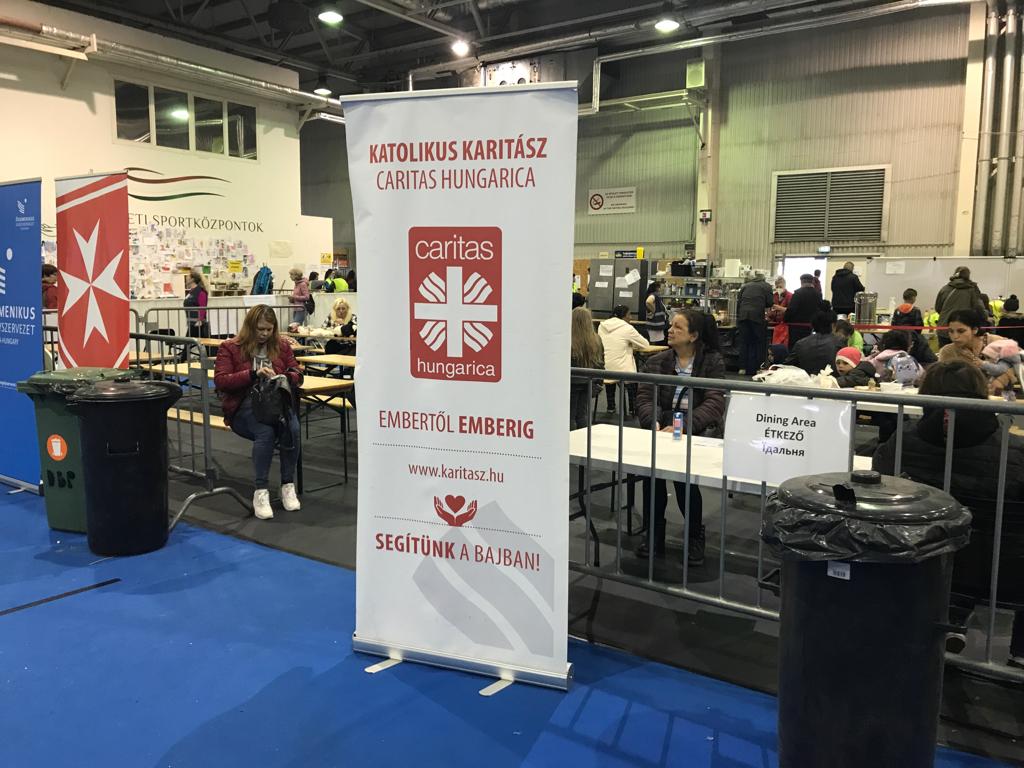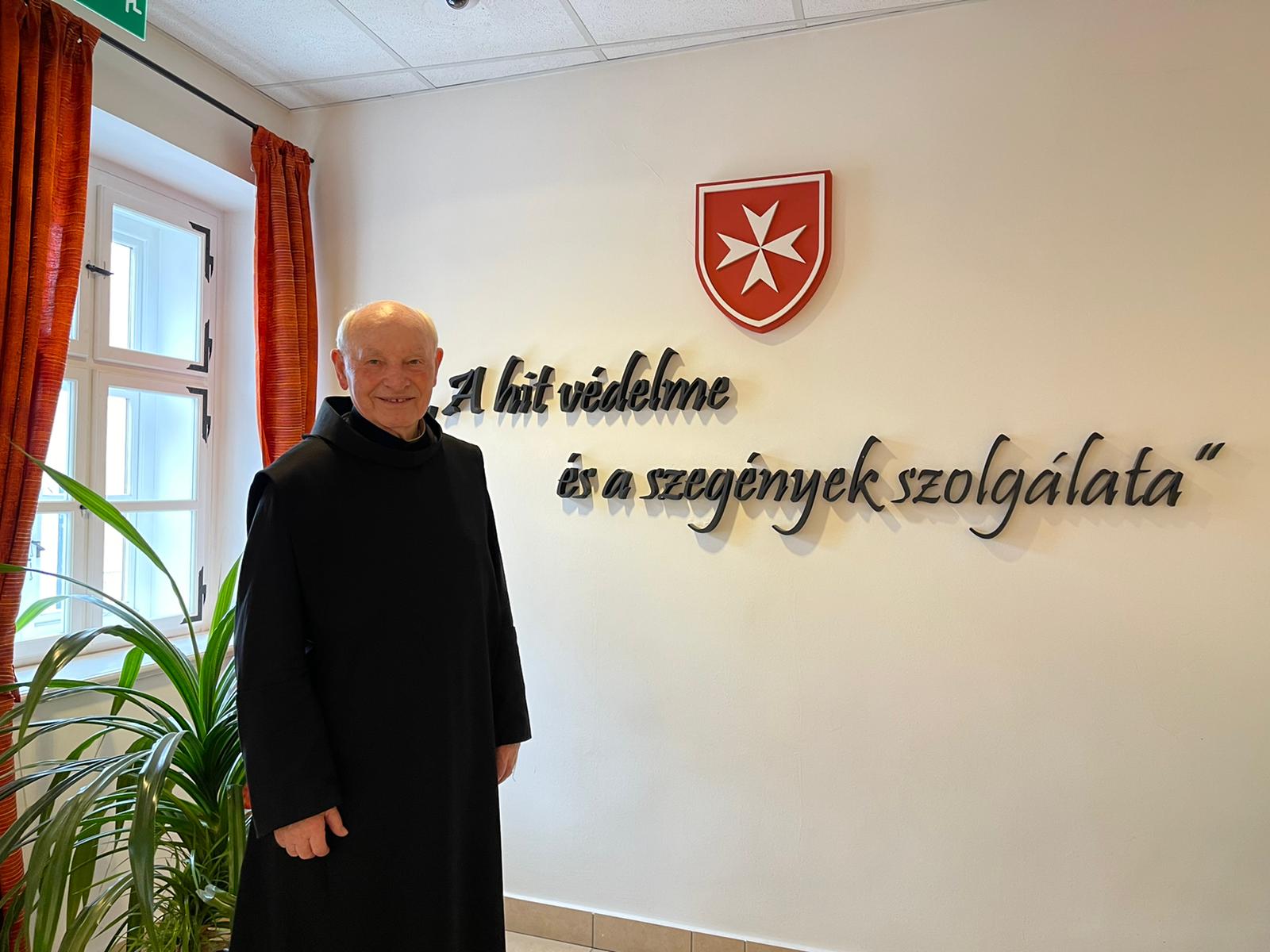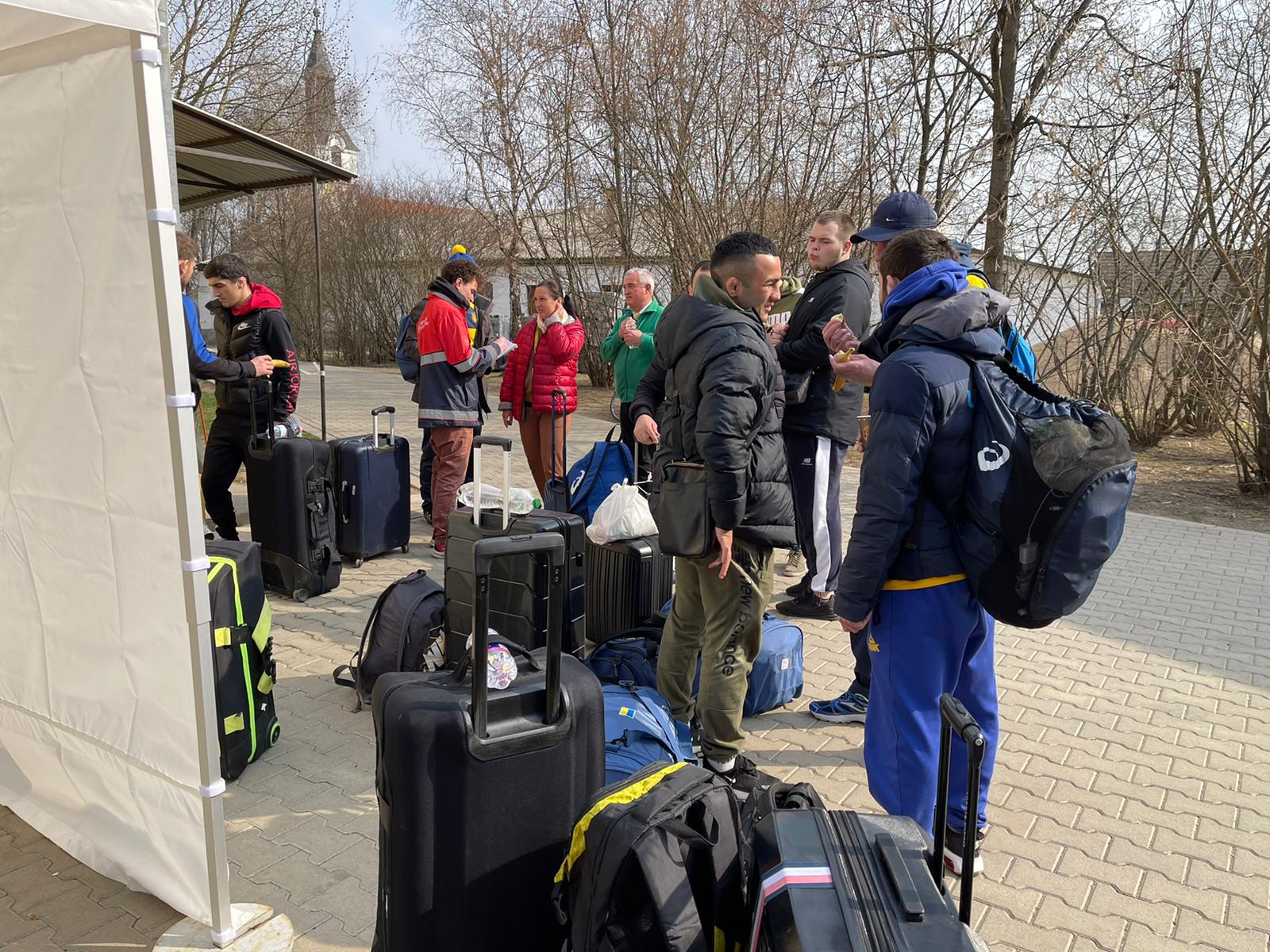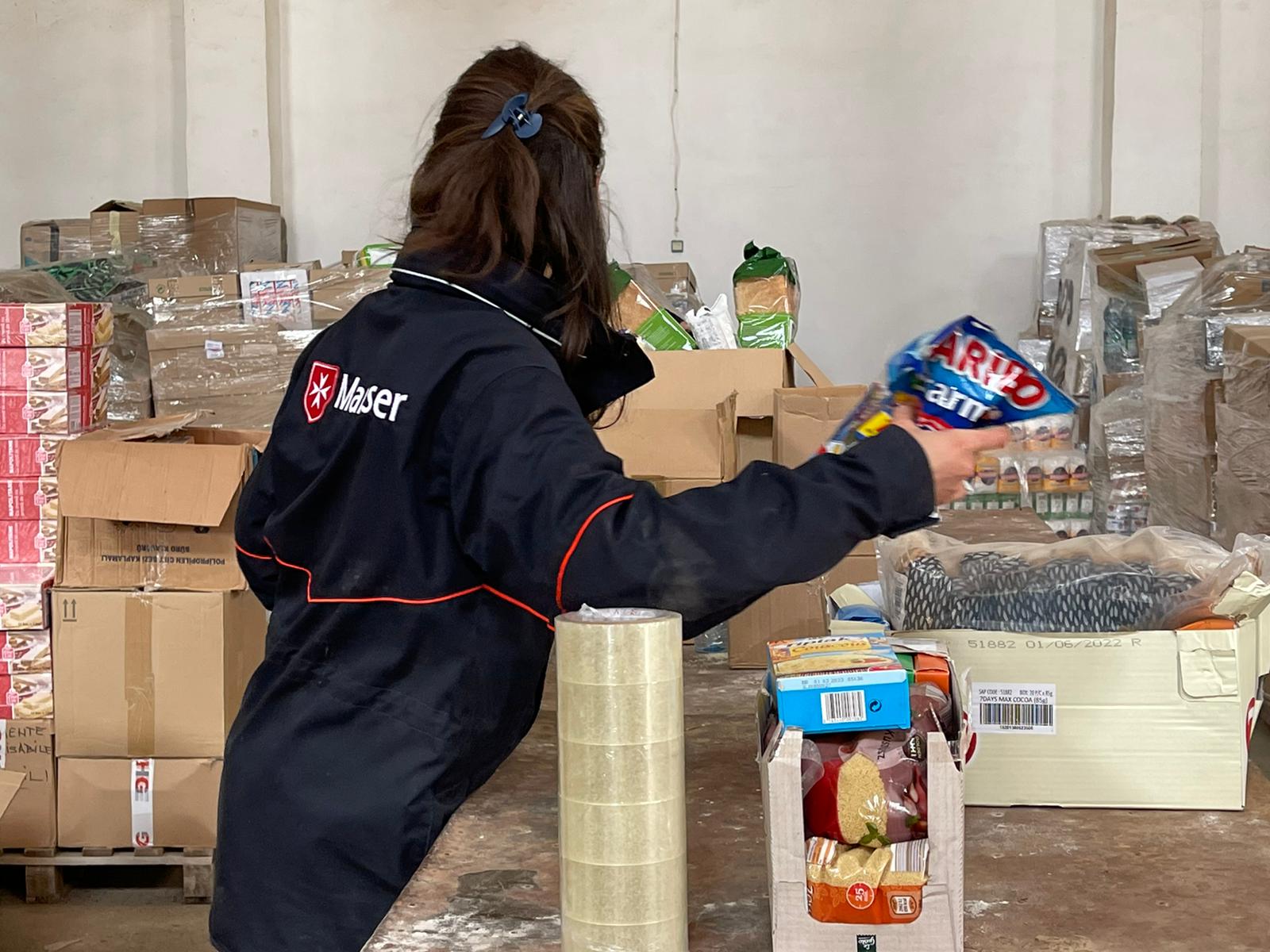4,500 operators, 12,000 volunteers, 380 posts across the country. These are the numbers of the Order of Malta’s relief service in Hungary, currently engaged in tackling the refugee crisis caused by the war in neighbouring Ukraine. Hungary is one of the first countries of arrival for refugees after Poland, and the Order of Malta’s relief service has set up five hotspots and initial reception points here. Since the beginning of the war on 24 February, some 600,000 people have passed through the three access points along the border. Many of these have been assisted by the Order of Malta, which is responsible for coordinating the work of all the humanitarian agencies present in the country and involved in the crisis.
In Berehove, Ukraine, in the Transcarpathian region, the Order of Malta’s Hungarian and Ukrainian relief agencies operate a reception point where refugees are offered a friendly welcome, a hot meal and a rest on one of the beds available. A little further along the road that leads out of the country, there is a large warehouse where food and basic necessities, ranging from medicines to hygiene kits, are stored, coming mainly from Europe. Every day, 5,000 tons of goods are distributed in ready-made packages for incoming families. A few miles on, just before the Ukrainian-Hungarian border, the Order of Malta has another post where support is provided to those leaving the country. It is a kind of relay of help and support to accompany the refugees on their long and exhausting journey away from home.
A few miles from the border, in Beregsurany in Hungarian territory, the Order of Malta operates another hotspot where refugees arrive on foot or by bus. Currently there are about 1,200 people crossing this border daily, although there were 1,500 just a few days ago. Access to the exit routes from the country is becoming more difficult as infrastructure, roads and connecting bridges are destroyed. Upon their arrival, refugees – mainly women and children – are welcomed by the Order’s operators who offer hot food and drinks. Among them is Olga, a young girl of twenty years or so from Donbass. The Order of Malta helps her to fill in the necessary documentation to continue her journey to Germany. Olga is travelling with only her inseparable Persian cat, cradling him like a child.
The hotspot managers explain that, in addition to providing healthcare and basic necessities, they seek to give moments of normality to those arriving, frightened and exhausted by the long days of travel. Especially children, who are first of all given a burger and chips.
The majority of refugees then continue to Budapest, thanks to shuttle services and trains. In the capital, the Order of Malta operates three hotspots and aims to open another two. Bok is a huge sports hall where thousands of refugees pass through every day. The centre is impeccably organized with a space for prayer, another for refreshments, a consultation desk for those looking for a job, and even a reception area for those traveling with animals.
Refugees receive medical, legal and above all logistical assistance; most want to join friends and relatives in other countries, others remain in Hungary, hosted in one of the various facilities set up in recent weeks.
“The Order of Malta is now planning for the future. At least 300,000 people will remain in Hungary for a medium-long period and it is important to start organizing activities for their integration. Children must go to school from September, adults must be able to access health services and the labour market,” explains Lajos Gyori Dani, vice-president of the Order of Malta’s relief service in Hungary. We meet him together with Monsignor Imre Kozma, founder and president of the Order of Malta’s relief service in the Magyar country. Father Kozma is not new to humanitarian emergencies. It was he who, in 1989, organized reception operations for East German refugees after the fall of the Berlin Wall, officially establishing the Order of Malta’s Hungarian organization: 30 years later now one of the most important in the country.
There have been at least three other major refugee crises in this country: from the war in Yugoslavia, the 1991 revolution in Romania up to the crisis of 2015 with the migrant flow from Syria. “We are only trying to help and rescue people”, says Monsignor Kozma, “these crises are often exploited for political purposes but we stay out of politics.” Just a few hours after our meeting, Father Kozma is driving to Poland where, with some of the Order’s volunteers, he will be delivering an ambulance to colleagues and friends of the Polish association, also on the front line of this serious humanitarian crisis.
















